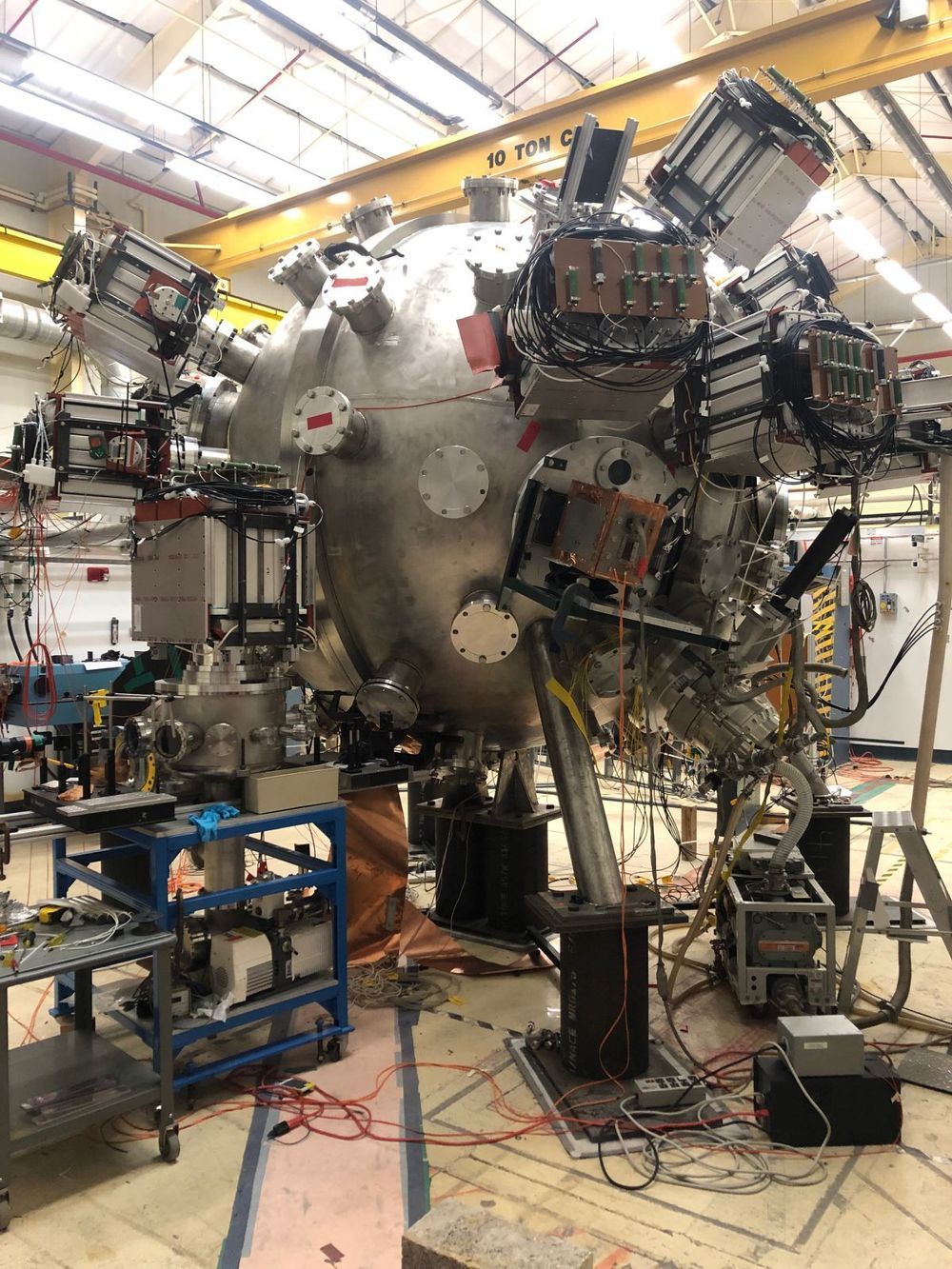Generating endless energy with zero emissions by just slamming hydrogen atoms together has been somewhat of a pipe dream for decades. Now, scientists may be getting a tiny step closer to feasible fusion power, thanks to a futuristic experiment and dozens of plasma guns.
Eighteen of 36 plasma guns are in place on the machine that could make fusion power a reality. Those guns are the key components of Los Alamos National Laboratory’s Plasma Liner Experiment (PLX), which uses a new approach to the problem. PLX, if it works, will combine two existing methods of slamming single-proton hydrogen atoms together to form two-proton helium atoms. That process generates enormous amounts of energy per speck of fuel, much more than splitting heavy atoms (fission) does. The hope is that the method pioneered in PLX will teach scientists how to create that energy efficiently enough to be worthwhile for real-world use.
The promise of fusion is that it produces tons of energy. Every time two hydrogen atoms merge into helium, a small portion of their matter converts into a whole lot of energy.
